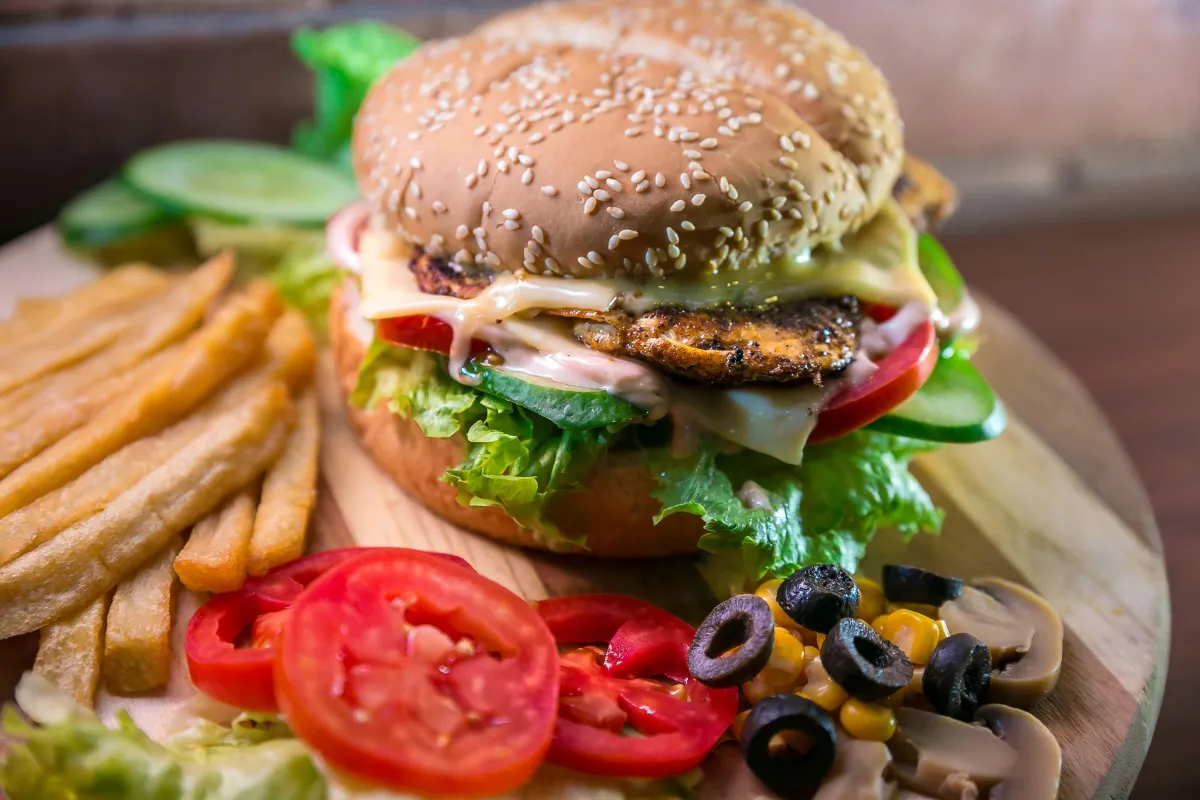The Beastly Blog

How Fast Food Can Actually Support Your Health
Photo by Haseeb Jamil on Unsplash
⚠️ Let’s Start with a Hot Take
What’s up, you beautiful Beasts? In this article, I’m probably gonna piss some people off, but I’m okay with that. Because I’m about to say something most health spaces don’t want to touch:
Fast food can be part of a healthy life.
No, I’m not claiming a cheeseburger is the same as a green smoothie or that drive-thrus are the new health food mecca. I’m saying real health is a lot more complex than clean-eating checklists and perfect meal prep. The idea that grabbing takeout means you’re lazy, broken, or failing? That’s diet culture talking. It’s not science, and it’s definitely not compassion.
The truth is, food is more than just fuel. It’s about time, money, energy, relationships, and sometimes pure survival. When your world is on fire and you’re doing your best to get through the day, fast food might actually be the healthiest choice you could make. Let’s break it all down.
The Truth About “All Foods Fit”
Let’s be clear. “All foods fit” doesn’t mean nutrition doesn’t matter or that we pretend Skittles and salmon are nutritionally equivalent. It means food plays many roles in our lives, and reducing it to just numbers or macros completely misses the point.
Food is about function. It’s about your schedule, your stress, your accessibility, your culture, your cravings, your mental health, and your energy levels. You are not a spreadsheet. Your health isn’t a math equation. And no single meal has the power to make or break your body.
Health isn’t about isolated choices. It’s about patterns over time. It’s not about perfection. It’s about context.
So… Can Fast Food Actually Be Healthy?
Sometimes? Yes.
Not because it’s packed with superfoods or seasoned with Himalayan sea salt, but because in real life, health includes your emotional, relational, and logistical reality.
Imagine this. You’ve had a brutal day. You’re overstimulated, underfed, exhausted, and broke. You pull into a drive-thru. You feed your kids. You stay on budget. You go home and finally sit down, breathe, and exist as a human for five minutes.
That isn’t failure. That’s function. That’s care. That’s health.
It’s not about what’s in the wrapper. It’s about what that meal gave you the capacity to do next. And yes, some fast food places offer more nutrient-dense options like salads, grilled proteins, or fruit. That’s great if that’s what works for you.
But you’re not failing if you choose fries over fruit. You’re not morally superior for getting the grilled chicken sandwich. You’re not “bad” if you went for the cheeseburger and a Coke. Health is not about moralizing your menu. It’s about meeting your needs with honesty and flexibility.
Real-Life “All Foods Fit” Moments
These real-world moments are just as valid as any organic kale salad:
The broke-and-burned-out burrito: You only had $8 to feed yourself. You stayed on budget and nourished your body. That’s health.
The depression-day ramen: You couldn’t cook, so you made what you could and kept going. That’s health.
The Lunchable in the car between client calls: It kept your blood sugar stable so you could focus. That’s health.
The birthday cake: You celebrated with joy instead of micromanaging every calorie. That’s health.
The sandwich someone else made when you were in pain or exhausted: You chose function over aesthetics. That’s health.
These are not failures. They are not cheats. They’re not evidence that you “fell off track.” They are powerful, real-life examples of food fitting into your life in a way that actually supports your whole health, not just your macros.
What About Nutrition?
Of course nutrition matters. You can’t live on energy drinks and gummy worms and expect to feel amazing forever. But just because nutrition matters doesn’t mean we have to obsess over it or let it control our self-worth.
You can eat vegetables and still enjoy fast food. You can prioritize protein and still eat cake. You can love learning about micronutrients and still eat something just because it brings you joy.
We’re allowed to care about nutrition without turning it into a weapon of shame. So instead of constantly asking, “Is this food good or bad?” a better question might be, “What do I need right now, and how can food support that?”
One cookie won’t wreck your health. One green smoothie won’t fix everything. Health is built through consistent, compassionate choices over time, not single meals in isolation.
Final Thought
If you’ve ever felt guilty for eating fast food, or cried in your car while eating a burger and a side of shame, or believed you ruined everything because you didn’t meal prep…
You didn’t ruin anything.
You are not broken. You are not lazy. You are doing what you need to survive. And sometimes, food is part of that survival.
All foods fit.
And you fit, too.
Real health isn’t about control or punishment. It’s about building self-trust. It’s about honoring what your body truly needs. It’s about reconnecting your brain and body as partners instead of enemies. And that, my friend, is what it means to unveil the beautiful Beast within you.
Watch the Video Version Here:
Sources and References
Foundational Framework for “All Foods Fit”
Tribole, E., & Resch, E. (2020). Intuitive Eating (4th Edition).
➡️ Originated the “all foods fit” concept; backed by numerous peer-reviewed studies.
Poverty and Fast Food Access
Drewnowski, A., & Specter, S. E. (2004). Poverty and obesity: the role of energy density and energy costs.
➡️ Explains how time, budget, and access impact food choices and why fast food is often a practical option.
https://doi.org/10.1093/ajcn/79.1.6
Emotions and Eating Behavior
Macht, M. (2008). How emotions affect eating: A five-way model.
➡️ Demonstrates how food helps regulate emotions and why that doesn’t make it wrong.
https://doi.org/10.1016/j.appet.2007.07.002
Mindful and Intuitive Eating Approaches
Tylka, T. L., & Kroon Van Diest, A. M. (2013). The Intuitive Eating Scale–2.
➡️ Research shows that intuitive eating is linked to better psychological and behavioral health.
https://doi.org/10.1037/a0030893
Shame and Health Behavior
Puhl, R. M., & Suh, Y. (2015). Health consequences of weight stigma: implications for obesity prevention and treatment.
➡️ Stigma and shame around food and weight harm both mental and physical health.
https://doi.org/10.1007/s13679-015-0153-z
Copyright 2025 | Beautiful Beast Within Studios LLC | Privacy Policy

